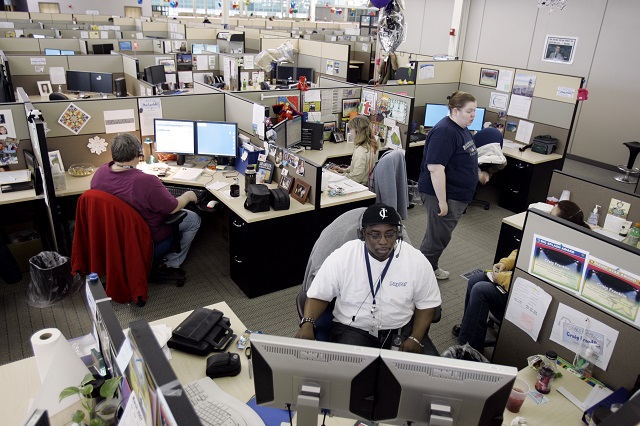
Credit: AP Photo / Nati Harnik
When you think of dangerous work, you probably conjure up images of crab fishermen braving the frigid Atlantic, lumberjacks operating chainsaws, or truckers navigating icy roads. You probably don’t think of late nights at the office, or working overtime at the cash register. But maybe you should. Jeffrey Pfeffer, a professor of organizational behavior at Stanford University, argues that seemingly-innocuous workplaces have become increasingly bad for our health over the past few decades. He’s the author of “Dying for a Paycheck: How Modern Management Harms Employee Health and Company Performance – and What We Can Do About It.”
Three Takeaways:
- Even if you work at a white-collar office job, serious stress can lead to health problems. Pfeffer says this is especially true if your employment feels insecure, if you struggle to balance work and family, if you work long hours, if you feel like you’re not treated fairly, or if you have a lack of autonomy.
- Pfeffer believes that toxic workplaces are a major health crisis, resulting in, he argues, 120,000 excess deaths a year in the United States.
- Pfeffer hopes that both governments and corporations will wake up to the hidden health crisis of toxic workplaces. Just as the world grew aware of the harmful effects of environmental pollution, he thinks that we could start to view workplace stress as an issue that needs to be dealt with in a similarly aggressive way.
More Reading:
- Pfeffer believes there are a bunch of companies that are doing it right. Here are the stories of some of them: Southwest Airlines, Patagonia, DaVita, and SAS.
- Toxic workplaces aren’t even good for companies’ bottom lines. Here’s a Harvard Business Review article on how long hours can negatively impact productivity.
- Pfeffer explains why corporate leadership often fails.

